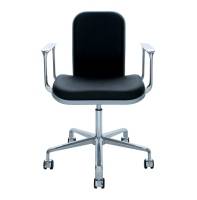September 23, 2014
Government invites responses on EU public sector procurement regs
 The UK Government is inviting firms to contribute to a new consultation on the implementation of the latest EU draft regulations for public sector procurement. The Government claims that the consultation follows two years negotiation with the EU on the simplification and modernisation of public sector purchasing and its results will help them to implement the 2014 EU Public Sector Directive effectively and in the best way. The ultimate aim of the new regulations is to make public sector procurement ‘faster and less costly and will lead to better value outcomes for government, industry, and the wider public sector’. The consultation document can be found here. Responses should be emailed to transposition@cabinet-office.gsi.gov.uk or in writing to Crown Commercial Service Helpdesk, Cabinet Office, Rosebery Court, Norwich, NR7 0HS.
The UK Government is inviting firms to contribute to a new consultation on the implementation of the latest EU draft regulations for public sector procurement. The Government claims that the consultation follows two years negotiation with the EU on the simplification and modernisation of public sector purchasing and its results will help them to implement the 2014 EU Public Sector Directive effectively and in the best way. The ultimate aim of the new regulations is to make public sector procurement ‘faster and less costly and will lead to better value outcomes for government, industry, and the wider public sector’. The consultation document can be found here. Responses should be emailed to transposition@cabinet-office.gsi.gov.uk or in writing to Crown Commercial Service Helpdesk, Cabinet Office, Rosebery Court, Norwich, NR7 0HS.












 Avanta Serviced Office Group has signed a deal to establish a new business centre in the heart of London’s Tech City at The Eagle, a 27 storey art-deco-style development on City Road, EC1, from Mount Anvil – Central London’s specialist residential-led developer. The centre is set to open on the 1st March 2015. The new centre will provide over 26,000 square feet of flexible office space over two floors, with approximately 400 desks. Set within a mixed-use development comprising retail, affordable accommodation, offices and high-end residential, it is located within TFL’s Zone 1, approximately five minutes’ walk from Old Street Rail and Underground Station, just two stops from Kings Cross.bThis is Avanta’s first site within Tech City, also known as Silicon Roundabout, which is the third largest technology start-up cluster in the world and home to over 15,000 growing businesses.
Avanta Serviced Office Group has signed a deal to establish a new business centre in the heart of London’s Tech City at The Eagle, a 27 storey art-deco-style development on City Road, EC1, from Mount Anvil – Central London’s specialist residential-led developer. The centre is set to open on the 1st March 2015. The new centre will provide over 26,000 square feet of flexible office space over two floors, with approximately 400 desks. Set within a mixed-use development comprising retail, affordable accommodation, offices and high-end residential, it is located within TFL’s Zone 1, approximately five minutes’ walk from Old Street Rail and Underground Station, just two stops from Kings Cross.bThis is Avanta’s first site within Tech City, also known as Silicon Roundabout, which is the third largest technology start-up cluster in the world and home to over 15,000 growing businesses.












